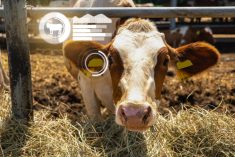Everyone wants to minimize the amount of taxes they pay. For farmers, reducing and deferring taxes leaves more money on the farm to re-invest in assets or increase compensation to employees and owners. There are many different tax tips and reduction strategies for farmers like you.
KEEP GOOD RECORDS
To ensure that you claim all eligible expenditures, it is important to keep appropriate financial records. A lack of documentation increases the risk of missing possible tax deductions. To avoid not claiming all possible tax deductions, devise a simple system to organize and maintain your records for each taxation year. There are many easy software packages available to you some of which also help track crop and production records.
Read Also

Gentle treatments for pain in the neck
Heading toward year-end, people unknowingly tense up against the cold and busyness, causing neck pain that can often be treated with appropriate support and gentle mobility, athletic therapist Kathlyn Hossack says.
DEFER TAXES, WITHIN REASON
Canadian farmers have the ability to report taxable income on a “cash basis.” This allows for significant tax to be deferred until a future year. While this does not mean that tax can be avoided altogether, it does provide the potential for savings, either by deferring taxable income until rates decrease or by spreading income over more than one year to stay in a lower tax bracket.
The concept of cash basis reporting is quite simple. All cash expenses paid prior to the end of the year are deductible, and all
cash revenue received prior to the end of the year is taxable. There are some ways to reduce your year-end tax bill, including pre-buying supplies such as fertilizer or chemicals that you will need for the next crop year, and asking customers to delay payment until after your tax year-end.
It is important to remember that not all cash expenditures
will result in a tax deduction. For example, repaying a loan will not result in additional tax savings, but paying a repair bill for your tractor will. It is advisable to contact a tax professional prior to making any large year-end cash expenditures to ensure you will receive the maximum tax savings for your dollars spent.
CREATE A SHORT-TERM TAX PLAN
Once the tax year-end has passed, the vast majority of cash basis tax savings opportunities disappear. To maximize the tax savings available, it is beneficial to do some advance tax planning. The key is to ensure that you allow sufficient time to devise and execute a plan prior to the tax year-end. It is important to contact your tax advisor early and set a specific timeline to ensure that year-end tax planning can be performed.
———
To maximize the tax savings available, it is beneficial to do some advance tax planning














